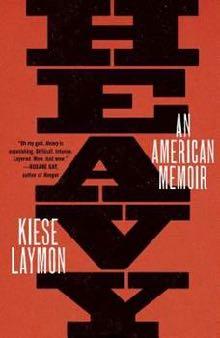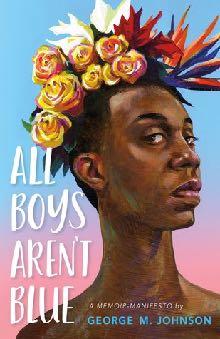
4 minute read
Reviews May Vary: Book of the Month with Dr. Kenya Malcolm
This month’s BlaqueOut theme is masculinity. I think about masculinity often as someone who has friendships with gender- expansive adults, but also as a professional who works with families. Over the last few years, I’ve noticed more tolerance for men in their exploration of what it means to be a man, although I fear the Black community may be slower in that tolerance than others, sometimes. I’ve been delighted to talk with more fathers who fighting against the cycle that taught them emotional intelligence and nurturing connections are less important than physical strength and control. Men are enjoying more rewarding relationships with their children and their partners. More men are allowing themselves to stay home with their children while their partners work. More men are wearing dresses and makeup. As a woman, I don’t have direct experience of what it means to confront a too- tight expectation for masculinity and decide that it is no longer for you. But I offer two memoirs by authors that do.
Advertisement

I read this book as part of the discussion group led by Rochester, NY cultural leader, Tokeya Graham. You can see her discussion recorded live back in March: hNps:// P.watch/2oA2z6uDDX/. Heavy is basically a leNer to Laymon’s mother. He explores how he came to quesCon his own understanding of what it means to be a man through his experiences with his family, friends, and trauma. He talks about his relaConship with food a8er he discovered that it could be a comfort and a distracCon and then again when he needed to feel more in control of his life. I think about this book at least once every few weeks. It’s a powerful book and Professor Graham (and commenters) offer a powerful review.
Here are a few quotes to hold you over until you can get the book:
“And don’t fight when you’re angry. Think when you’re angry. Write when you’re angry. Read when you’re angry.”
“It ain’t about making white folk feel what you feel,” she said. “It’s about not feeling what they want you to feel. Do you hear me? You beNer know from whence you came and forget about those folk.”
“My body knew things my mouth and my mind couldn't, or maybe wouldn't, express. It knew that all over my neighborhood, boys were trained to harm girls in ways girls could never harm boys, straight kids were trained to harm queer kids in ways queer kids could never harm straight kids, men were trained to harm women in ways women could never harm men, parents were trained to harm children in ways children would never harm parents….. My body knew white folk were trained to harm us in ways we could never harm them.”
This book is getting quite a bit of buzz and I think is in talks to become a show. It is a collecCon of personal essays in which Johnson reflects on his early family relationships, growing up as a gay Black male in New Jersey and Virginia. He always felt like he stood out in his close- knit family. He speaks about the tensions that he felt between his queer and black identities and how he has integrated them. Johnson implores his readers to consider how their own identites have been shaped by society’s condiConing and to define themselves with more freedom. Honestly, this book won’t make my top picks for 2020. It’s organization is a little loose for me; the book is a mix of “story time” and letters. I don’t always connect to Johnson’s story. But it’s not my story to connect to. His “be who you are” message is far-reaching but he’s offering a hand down to young Black boys who might feel stuck in a small box.

You’ll find that people o8en use the excuse “it was the norm” when discussing racism, homophobia, and anything else in our history they are trying to absolve themselves of. Saying that something was “a norm” of the past is a way not to have to deal with its ripple effects in the present. It removes the fact that hate doesn’t just stop because a law or the time changed. Folks use this excuse because they are often unwilling to accept how full of phobias and -isms they are themselves or at least how they benefit from social structures that privilege them.
You sometimes don’t know you exist until you realize someone like you existed before.
Ok, Dear Reader. There you have it. As always, feel free to drop me a line at: ReviewsMayVary@gmail.com if you have thoughts about my recommendations or if you have recommendations for me.










